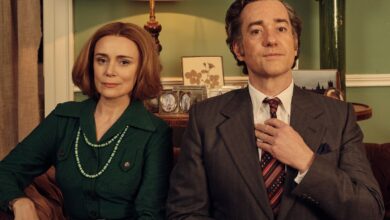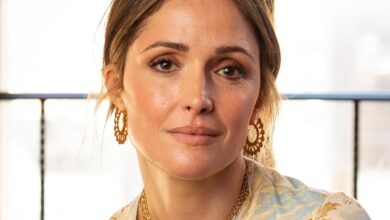Clarkson’s Farm season two review: Whatever you think of Jeremy Clarkson, this is a winning formula

Could I, a normal bloke, run a crystal meth empire? Could I survive on a mysterious, sinister Pacific island? Could I spend years in combat training so I might kill the leader of a zombie army? So much of great TV is about taking ordinary people and exposing them to the crucible of the extraordinary. It permits the audience to analyse and hypothesise about their own suitability for the task – and no show of recent years has done this with greater panache than Clarkson’s Farm. Could you artificially inseminate a heifer?
“There have been a few changes,” Jeremy Clarkson, the proprietor of the Diddly Squat Farm announces in the opening monologue to this, the second series of his self-titled Amazon Prime show. The “ruinously expensive” sheep are gone, the durum wheat is flourishing, and the farm shop has created so much traffic that locals apparently can’t get to their Covid vaccinations. But, otherwise, things are as they’ve always been: Kaleb full of earthy impertinence, Gerald rambling in his unintelligible West Country brogue, Lisa and Charlie the rare voices of common sense, and Clarkson himself, constitutionally cack-handed. It’s a winning formula, and one they know not to mess with.
Of course, the success of the first series has changed things. “You said on ITV the other day that you’re the boss,” Clarkson says, teasing Kaleb who shares, no pun intended, sheepish grins with the camera crew. From his belief that his Oxford-born baby is “foreign”, to the fact that he’s never travelled by train, Kaleb continues to be an enormous source of amusement. And yet it’s never condescending. Clarkson is an expert at the tightrope walk of “banter” (that horrible term), engaging Kaleb on precisely the terms that he allows in return (“You’re such a muppet!” seethes Kaleb after his employer breaks a tractor). Self-awareness is creeping in – like a Gogglebox family who know they’ve had a good first season – but that’s the nature, I suppose, of a documentary about a farm that is half-agricultural project, half-media branding exercise.
I am not here to review Jeremy Clarkson outside of the show, or any columns he may have written in recent months. In Clarkson’s Farm, he is a terrifically articulate and charismatic advocate for rural issues. From Brexit – which he analogises as Fifa changing the rules of football but failing to specify in what ways – to HS2 (the thief, according to Clarkson, of all the nation’s concrete), he provides a welcome, hands-on perspective. Naturally, these big stories are somewhat less anarchically joyful than watching Clarkson, and a team of chili chutney chefs, descend into an unbearable coughing fit over the stove.
Those with a low Clarkson-tolerance will struggle with Clarkson’s Farm. It is filled with Clarksonisms and blokey pomposity. “Kill the badgers!” he demands, that rumbling voice emerging from his Bagpuss face. And the merrier moments are more puerile. “Look at that faeces,” he says, beaming at some chickens pecking worms from a vast pat, “what a feast!” But what Clarkson understands – has always understood, from the early days of Top Gear – is that there is a sweet spot of confected reality, somewhere between Keeping Up with the Kardashians and the News at Ten. Sure, the dangerous situation is of his own creation, but he’s really there, putting knees and fingers and, in the case of some high-Scoville chilis, bowels, on the line.
Clarkson’s Farm is, at its heart, a bromance. Richard Hammond and James May have been swapped out for the brass-necked Kaleb and the level-headed Charlie, but the dynamic remains a satisfactory foil for Clarkson’s excesses. The final product is not dissimilar to something the Diddly Squat Farm Shop might sell: over-packaged and slightly artificial, but undeniably delicious.





